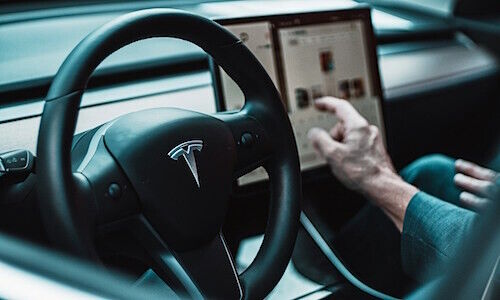KPMG: China is Lone EV Optimist
Economic concerns have weakened the profit outlook for electronic vehicles, according to a KPMG survey of industry executives. Optimism in China is the exception.
Auto executives are less confident that the electronic vehicle (EV) industry will achieve more profitable growth over the next five years due to concerns about the global economy and rising costs, according to KPMG’s 24th annual global automotive executive survey. Extreme confidence fell across the board in Japan (32 percent to 10 percent), Western Europe (31 percent to 24 percent) and the US (48 percent to 43 percent).
The forecasted timeline for achieving cost parity with conventional cars (excluding subsidies) has also lengthened. 66 percent of respondents said that parity could be met by 2030, down from 70 percent last year.
Supply Chain
Following disruptions in recent years, executives expressed concerns about supply chain management, shifting from «just in time» to «just in case» models.
«Companies are pursuing a wide range of strategies to build resilience and things are far better than two years ago. Still, there is a high level of concern about the continuity of supply for many commodities and components over the next five years,» the report said.
China Stands Out
In contrast, auto executives in China stand out as being exceptionally optimistic. Extreme confidence in profitable growth in the next five years rose from 28 percent to 36 percent. 87 percent of Chinese OEM executives expect parity with conventional cars by 2030, up from 71 percent last year. And the second-largest economy is also less concerned about supply chain risks.
«Chinese executives are considerably less worried about continuity of supply, because the country has been setting much of the supply of key commodities, particularly raw materials for EV batteries and EV components,» the report explained.
Tech Challenges
On technology, auto executives felt less prepared than the previous year for advanced technologies (12 percent, down from 22 percent in 2023) such as artificial intelligence, digital twins, and advanced robotics.
The report also noted concerns about automotive cybersecurity. While executives are confident about adequate cybersecurity and customer data protection, KPMG underlined that they may be «over-confident».
Leading Brands
Despite the emergence of new models by established brands, respondents still expect Tesla to remain on top. More European executives predict that the American EV giant will continue to be a leader through 2030 while fewer foresee that BMW and Audi will dominate. In addition, executives also expect tech giants, such as Apple, Google, Samsung and Baidu, to enter the market.
KPMG’s survey was conducted in October 2023 with 1,041 executives in the automotive and adjacent industries. Respondents worked at companies with at annual sales of least $1 billion (323), $500 million to $1 billion (238) and under $500 million (459). 30 countries and territories were represented from Africa, Asia, Europe, Latin America, Middle East, and North America with the US (277) and China (154) accounting for the largest pools.




















